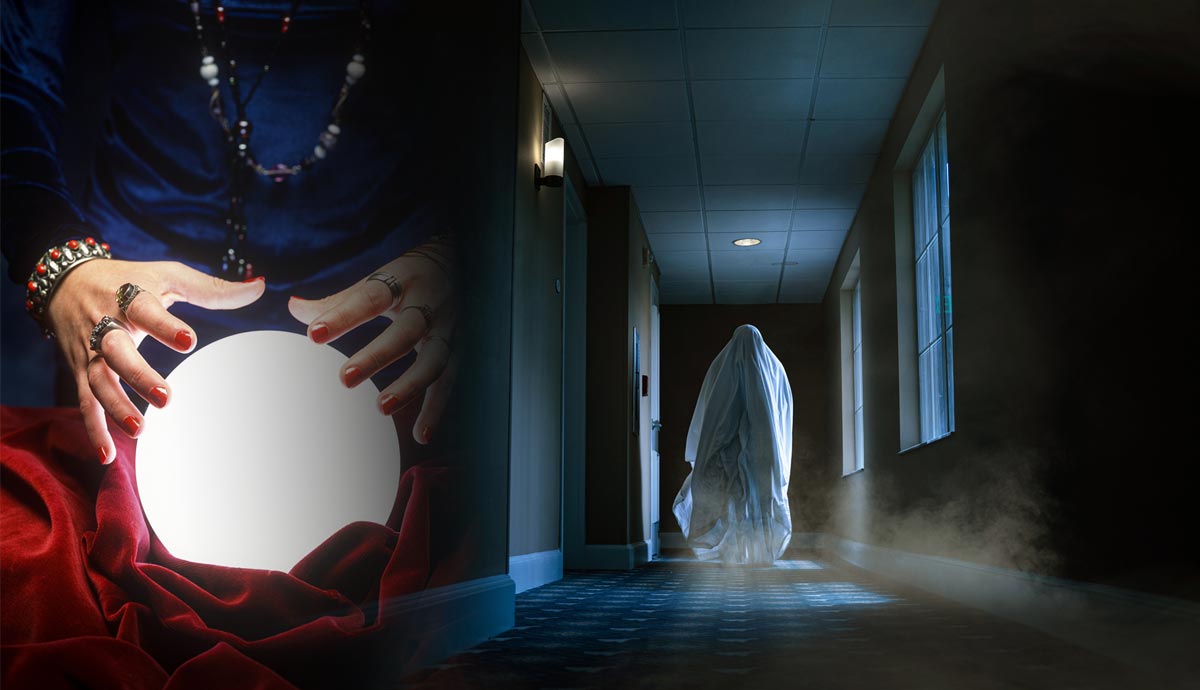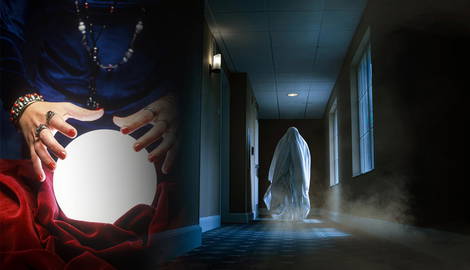
Have you ever wondered if supernatural beliefs are true? For example, do divine forces, ghosts, spirits, and magic exist in reality or in our imaginations? This is a question people have been asking themselves for centuries—one of those big questions philosophers love. This article will explore supernatural beliefs and consider some philosophical arguments. Whether you already feel certain about these things or you haven’t made up your mind yet, our investigation will intrigue you. Maybe it even might make you think there could be more to life than we thought.
Plato’s Theory of Forms

In his Theory of Forms, Plato presents an interesting world of flawless ideals, where each thought and item in our world has a pure, abstract copy. In this alternative realm, there exists a perfectly round circle, even though nothing like it can be experienced through our senses. These Forms exist outside what we can perceive—only accessible via the mind.
One way to think about this is in relation to supernatural ideas that go beyond what we can see or touch. Take, for example, the concept of having a soul or spirit. Plato might say these could also be thought of as Forms: perfect eternal things that exist beyond our physical reality.
If something like a soul was one of these Forms, then it would be the true essence of a person (not your body, which dies and changes). It will never cease to exist and cannot be destroyed.
The profound implications of this argument extend to supernatural beliefs. If we allow for the existence of Forms, then we might have to entertain the possibility that some other non-physical things or realms exist in much the same way.
This opens up a broader and more metaphysical understanding of the universe where, perhaps, the supernatural could be just as real as the Forms. These eternal truths never change and exist outside of our material world.
Looking at it from a Platonic perspective helps situate supernatural ideas within a long tradition of philosophical thinking. It encourages us to question what we think is real and consider aspects of existence that can’t be perceived with our senses alone.
David Hume’s Skepticism

David Hume, a significant figure in philosophy, is famous for his strict belief in empiricism and doubt regarding human knowledge. According to Hume, we can only know things based on our impressions (direct experiences) and ideas (memories of those experiences)—and this limits what we can claim to know.
Applying Hume’s framework to supernatural claims yields a surprisingly contemporary critique. If you were to bring a supernatural phenomenon to Hume, he would ask you for empirical evidence—something directly observable and measurable—so he could examine it himself. Without such evidence, Hume thinks belief in the supernatural remains speculative and unproven.
Hume is well-known for his writings on miracles, in which he used his skeptical approach. He argued that if something goes against natural laws—which we know about from regular experiences—then by definition, it’s a miracle.
In this case, a single contradictory event would actually be evidence against what we think we know about how things work (natural laws), which has a higher probability than the alternative. Therefore, believing in supernatural events such as miracles without lots of proof already isn’t sensible because rational thinking says these are probably not true.
Hume’s ideas also mean that when we consider whether supernatural claims are real , we should seek empirical evidence—information gathered through observation or experiment.
He wants us to examine our beliefs carefully using his philosophy and demands strong proof: showing something true beyond doubt, difficult or impossible.
Immanuel Kant’s Noumena

In his critical philosophy, Immanuel Kant draws a crucial differentiation between phenomena and noumena—and it is worth paying attention to.
For Kant, phenomena designate how we experience the world through our senses, shaped by our minds’ structural capacities. Noumena, however, refers to things as they are in themselves—reality existing independently of whether or not we perceive it.
Kant’s distinction poses intriguing questions about supernatural beliefs. If there are supernatural entities or realms, they might belong in the noumenal world, which is hidden from direct sensory experience but still capable of containing gods, spirits, or other metaphysical forces that influence the phenomenal world in ways we cannot see.
Kant believed that humans can only know about phenomena. We can’t directly know about things outside of the natural world or what they’re like.
Because of this, we can speculate on whether supernatural things exist—but not find out about them through any kind of science or sense experience. We can rather take them on faith or say they are metaphysically possible.
So, according to Kant’s philosophy, while we might feel like there is more to reality than meets the eye, including believing in supernatural things, we can never fully understand them using only our minds.
This way of thinking asks us to be humble, realize that there are limits to what we can know as humans, and still be curious about those limits.
William James’ Pragmatism

William James, a philosopher and psychologist who had great influence, advocated for pragmatism in evaluating belief and truth. Instead of asking whether an idea is abstractly correct, we should ask what difference it would practically make to believe it.
A belief is true if it proves useful or beneficial—not because it matches up with facts or reality (there might not even be a “reality” out there to match!), but because believing something makes a difference in our lives.
James also applied this pragmatic philosophy to religion and supernatural beliefs, considering how they might improve human existence when assessing their truth value. If believing in the supernatural provides comfort, moral guidance, or simply helps us enjoy life more, then those beliefs could be considered true (in a sense) precisely because they serve such functions.
For example, let’s consider someone who believes in guardian angels. According to Jamesian pragmatism, if this belief makes people feel safe and morally vigilant—improving their overall well-being and how they act—then the belief is true in the sense of being good for them. Whether or not such beings actually exist doesn’t matter so much; what counts is whether believing in them produces positive results in believers’ lives.
Rather than treating supernatural beliefs purely as ideas to be parsed for factual truth or falsehood, James’ perspective asks us also to think about them as something deeply felt that can have a big impact on human minds and actions.
This pragmatic way of thinking suggests we should be open-minded and kind when faced with different beliefs, considering not just where they come from but also what they do.
Blondel’s Original Philosophy of Supernatural

Maurice Blondel, a French philosopher, developed a complex philosophy that explored the interplay between human action and the supernatural—things beyond nature or science—which he thought were deeply connected.
Blondel’s approach, often called his philosophy of action, argues that as we try to make sense of our lives and find ultimate happiness, we are naturally drawn towards something supernatural.
He doesn’t say this is because there is proof of the supernatural. Rather, it’s because being human creates limits but also desires that go beyond what can be seen or proven. Blondel said our desires and what we do show that there must be more than just physical stuff in the universe.
For example, everyone everywhere wants justice, truth, and love. These ideals mean there has to be something behind everything else (an absolute) that is bigger than what we can measure with science or work out logically. Why would ideas like this exist if their fulfillment only lay within finite conditions?
Blondel believes we don’t experience supernatural things by adding them onto natural ones. Instead, they happen when we live in a way that’s true to ourselves and what we really want.
For example, someone who spends their life helping others or fighting for fairness might seem to be doing more than nature requires—maybe they’re obeying a higher law that doesn’t come from science.
Blondel doesn’t think there’s a separate supernatural world out there. Instead, he thinks it’s closely linked to everything you do daily and what your deepest self wants most.
This idea connects religious belief with ordinary life so well that there isn’t really any gap between them. According to Blondel, just by living in this world the way we do, we bring about supernatural results all the time.
Alvin Plantinga’s Religious Epistemology

Alvin Plantinga is a philosopher of religion who has done important work in religious epistemology by suggesting that belief in God can be “properly basic.” Drawing on his theory of epistemic justification, he argues that some beliefs can be rational and justified without being either inferred from other beliefs or supported by evidence in the usual way.
According to Plantinga, one does not need empirical data or logical proof to believe rationally in the supernatural—specifically God. Plantinga suggests that if we accept that our belief about the external world (that there is one) or other minds (that they exist) is foundational, then so too is belief in God.
He thinks humans have a natural inclination or even a kind of built-in sense for the divine. It functions as our senses do and gives us direct awareness right away of God being present (this would be similar to what it’s like when we see something really cool or beautiful happening).
According to Plantinga, believers can count religious belief as something they rationally think is true without needing other evidence—even while accepting things like science that seem to contradict it.
This doesn’t just mean religious belief isn’t irrational. It also provides a way for believers to push back against accusations of irrationality when people say believing in God is like believing in an invisible teapot orbiting the Earth.
By presenting faith in this way, Plantinga argues that it should no longer be seen as an odd or silly thing some individuals hold onto for no apparent reason. Instead, he suggests it is core human rationality itself: how we all think (at least at what philosophers call “the foundational level”) whether we’re religious or not.
So, Are Supernatural Beliefs Real?

Do supernatural beliefs have any basis in reality? This question straddles the line between what we can see and measure versus what we believe personally or based on culture.
Throughout history, humans have had ideas about beings or forces that science cannot prove. Whether it’s gods, ghosts, or something else entirely, whether these things are real often depends more on who you ask than on objective facts.
From a philosophical perspective, this question raises profound issues about truth, knowledge, and belief itself. Different philosophies offer different frameworks for understanding these invisible aspects of human experience.
Some argue that supernatural beliefs do important psychological or social work. For example, they make people’s lives better by giving them meaning or moral guidance. Others say they don’t have evidence for this stuff, so maybe it’s best to treat them as if they’re not true (or at least not yet proven), though they might still be personally meaningful.
Whether or not supernatural beliefs are true doesn’t matter as much as how they affect us and why we believe in them. They have a real impact on our lives—they shape our cultures, guide our actions, and always provide comfort to people everywhere.
Even if they can’t be proven using scientific methods, it’s worth considering their profound effect when examining their role in human existence.










